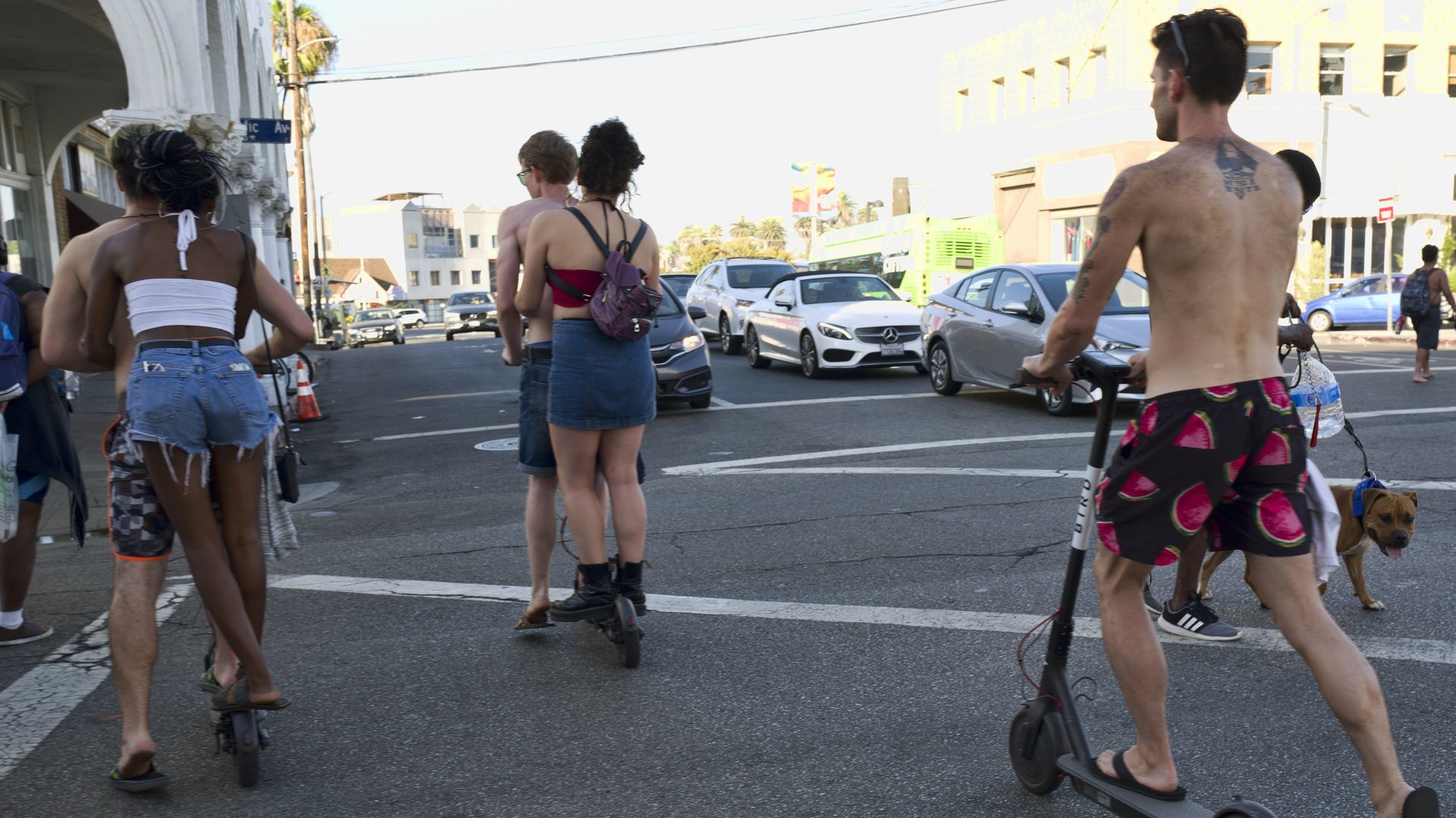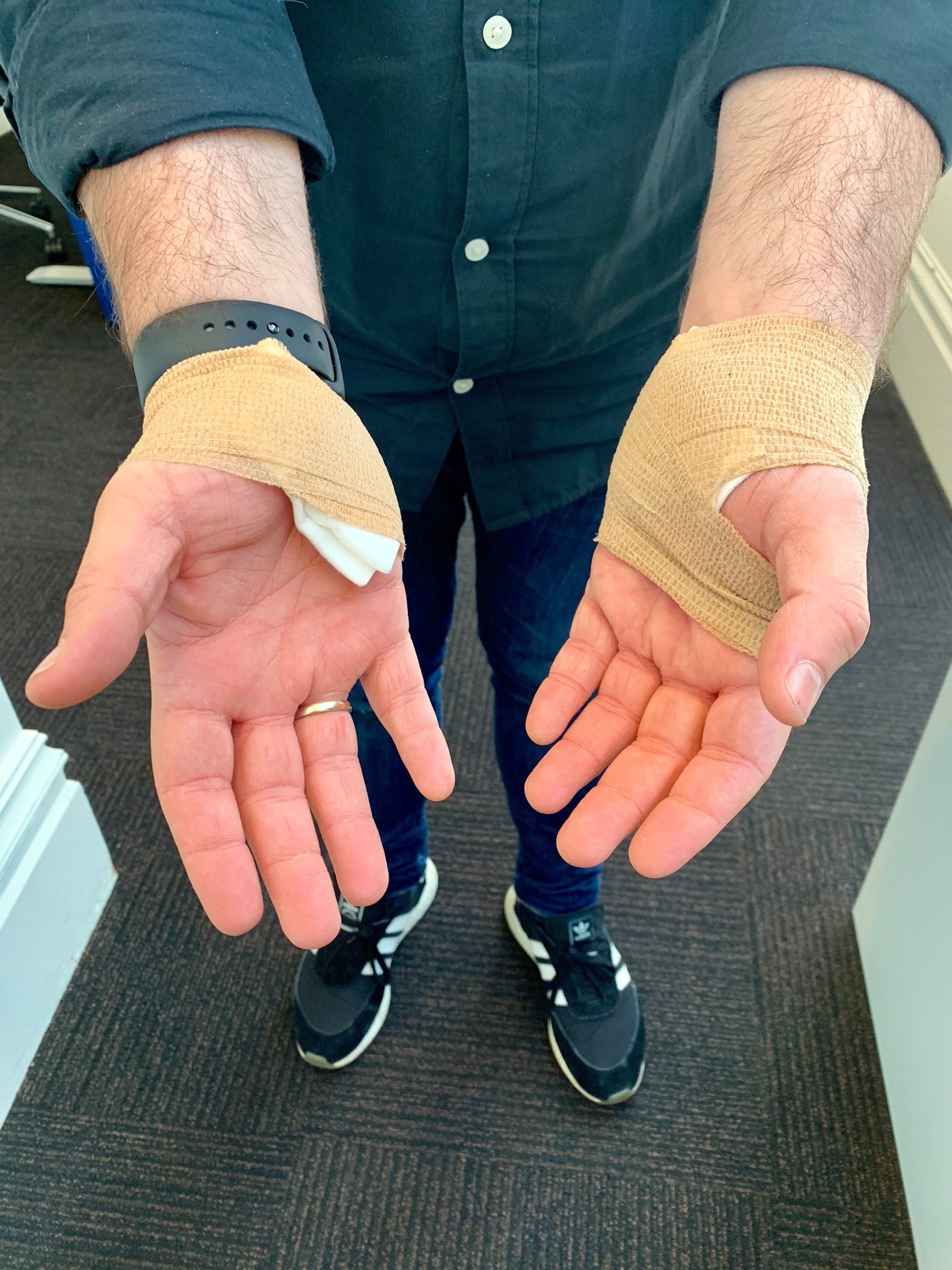Electric scooters won’t be the future of transport as long as there are idiots like me
Across the US, and increasingly around the world, startups have been dumping electric scooters onto city streets—sometimes with the blessing of city officials, sometimes not—for anyone with a smartphone to grab and scoot around town.


Across the US, and increasingly around the world, startups have been dumping electric scooters onto city streets—sometimes with the blessing of city officials, sometimes not—for anyone with a smartphone to grab and scoot around town.
These dockless scooters, which can be left by any curbside, have both been derided as a blight on city life, and celebrated as the future of “multimodal transport,” where alternative forms of transit fill in the gaps between cars, trains, and other forms of public transport.
The reality is likely somewhere in the middle. Scooters recently returned to the streets of San Francisco after an all-out gold-rush of scooters befell the city earlier this year. Early pioneers like Bird and LimeBike led the way for myriad copycat companies to buy a fleet of Chinese electric scooters, build an app, and start a company. Bird was so popular with investors that it became the fastest-ever company to reach a $1 billion valuation. But the scooters were being strewn everywhere, without the city’s permission, and eventually were banned. After requesting more information and setting guidelines for companies to follow, San Francisco reintroduced a limited number of scooters from two companies—Skip and Scoot—into the city in August.
The scooters from Skip are now ubiquitous in downtown San Francisco, and when I came to town for a reporting trip, I knew I had to try one. My first trip on a Skip scooter was from the Quartz office in the Financial District to the Mid-Market neighborhood, a ride of about 1.5 miles that cost me roughly $6. I was surprised how fast the scooter could go, but also how slow it was to accelerate as cars quickly passed around me. I felt somewhat unsteady on the scooter, especially when traveling close to the vehicle’s top speed of 18 mph. But the trip passed pretty much without incident. Next time I wasn’t so lucky.
After rounding out my exceedingly San Francisco day at a “Tweetup” hosted by Twitter CEO Jack Dorsey, I decided to get another Skip from the North Beach area back to my hotel. I noticed after a couple of minutes that the accelerator lever needed to be pushed back into its starting position or the scooter would keep accelerating—you should just be able to let go of the lever and the scooter should slow down. It was fine for a few blocks, but when I approached a red light on the Embarcadero, I couldn’t get the scooter to slow down after letting go of the lever. I squeezed on the brake (which only controls the speed of the front wheel, and won’t slow you down much if the motor is going), and was flung forward off the scooter.
It was painful. Thankfully a nice man at the restaurant I crashed in front of got me a napkin for my bloody hands, and the new Apple Watch I had been reviewing was vibrating like crazy, as its fall-detection sensor had accurately detected a fall and was attempting to call emergency services for me. I pulled the scooter onto the curb, stopped my watch, held onto the napkin, and completed the trip on the app. Skip’s app asked me if my trip was good or bad—I selected bad.
Skip responded very quickly to my tweet about the incident, refunded the ride, and pulled the scooter out of service. A member of the company’s safety team said their mechanics are checking to see what was wrong with the scooter, and that this was not a common occurrence. He offered to pay for the bandages I bought myself, and the jeans I ripped when falling. Skip was exceedingly helpful after the incident.

While it’s not great that Skip has potentially faulty vehicles out in the city (these things are abused by citizens near daily), the real issue here is that I didn’t just get off the scooter when I first noticed there was a problem. I wanted to get to where I was going and I thought I knew best. In the 24 hours I’ve been in the city, I’ve seen people riding scooters on the sidewalks, riding them the wrong way up streets, and even riding them with a second person on the back. Most have not been wearing helmets. Some people will always do dumb things if given the opportunity.
Hospitals in cities with dockless scooters have seen a rise in scooter-related incidents this year, and there has been at least one death as a result of someone riding a scooter. Los Angeles convicted a man for driving a Bird scooter while under the influence last month.
As scooters continue to proliferate into ever-more populated areas, cities are going to have to seriously evaluate how safe these devices funded by venture capitalists looking for a quick return really are, and whether they truly are the answer to gridlock and under-investment in public transportation infrastructure. Even when guidelines and safeguards are put in place, people will continue to make unwise decisions. Just look at me.